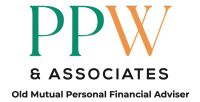The PPW Way
The PPW-CEE 360 is our unique approach to customer service excellence.

The workflow within our practice is structured in such a way as to give each client the best possible buying experience and places responsibility on every staff member to do his/her part in achieving this excellence. The outcome of this is a relationship between every client with every staff member on his or her field of service.

THE PPW 360 refers to the workflow cycle as stated below.
Relationship
Executive
...
Claims consultant
...
Client onboarding
assistant
...
OMI underwriting specialist
commercial & agri
...
client service
assistant
...
OMI UNDERWRITING SPECIALIST
PERSONAL LINES
...
What can you expect.
People
Profit
Peace of mind
FREQUENTLY ASKED QUESTIONS

Why do I need a financial adviser when I can purchase my products from a direct insurer?
It's all about advice and not necessarily the product. There is much more to financial planning than just buying insurance. Proper financial planning starts with a blue-print of your unique goals and dreams and a structured plan of achieving them. Investing in the right tax vehicle as well as establishing and implementing your risk appetite is a specialised field and one that a call centre agent (or robo-advice for that matter) cannot always grasp in the short time spent with a client. Your adviser can also help manage negative emotions in turbulent markets and avoid costly mistakes.

What is a CFP® professional?
The CERTIFIED FINANCIAL PLANNER® designation or CFP® designation is internationally recognised as the standard for financial planning professionals. The status gives consumers confidence that the financial planner they’re dealing with is suitably qualified to provide advice and information and gives assurance that they remain up to date with developments in the industry. In order to receive the respected CFP® designation, an applicant must meet the four E's of the profession of financial planning: Education Examination Experience Ethics In addition, CFP® professionals are required to maintain technical competence and fulfil ethical obligations by renewing their membership annually. To stay in touch with the happenings in the financial planning profession, every year they must complete 35 hours of Continuous Professional Development (CPD). Furthermore, at least five of these hours must be spent on Professional Ethics and Financial Planning Practice Standards. These strict requirements ensure that any individual who holds the CFP® designation is well prepared and highly qualified to provide consumers with sound, professional advice.

When it comes to investments, what value do I get for paying an ongoing advice fee?
Statistics show that the average non-intermediated investor (someone that invests directly with a product provider) is up to 4.9% per year worse off than an investor receiving advice from a credible financial planner. This gap in performance is partly because of what we call "The Behaviour Gap" and partly because of the "The Advice Gap". Taking this into consideration, paying your financial adviser his fees is aboslutely worth it.

Why is it important to do estate planning?
When you pass away, the costs and taxes involved is hugely influenced by the decisions you make and actions taken when you were still alive. With an up-to-date estate plan and last will and testament, you are assured of keeping your executor’s fees and estate duty to an absolute minimum whilst preserving your legacy for future generations.
